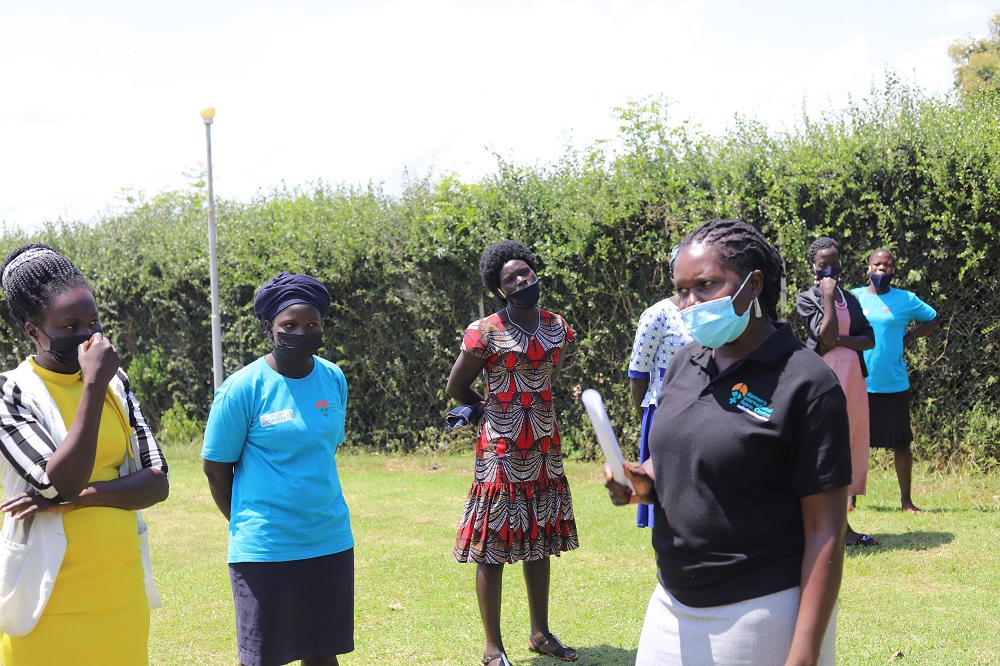To end the culture of violence against women in humanitarian contexts, The Peace Centre trained 30 Community Activists (25 women and 5 men) from Ciforo Sub County and Agojo Refugee Settlement in Adjumani District from 20th to 22nd August 2021. This training engaged the Community Activists on how to use their collective power to create and sustain positive change that prevents Violence Against Women (VAW) through the Action Phase. The Action phase is the fourth and last phase under the SASA Together methodology that aims to address the root cause of VAW and the power imbalance between women and men at both the individual and community levels.
The SASA Together Action Phase builds momentum from the Support Phase that aims at joining power with others to create an environment that accepts new ways of thinking and behaving. The Awareness Phase unpacks men’s use of power over women and the community’s silence about it and the Start Phase fosters the power within individuals to address violence against women.
During the sessions, we discussed the action and maintenance stages of change, in which all actions by community members since the Start phase culminate in a new normal, individually and across the community, leading to a commitment to actions that will sustain change over time. Some of the topics discussed included community activists living their beliefs, everyday activism opportunities, effective activism, challenges to preventing VAW, sustaining activism efforts, wellness and self-care in activism.
Community Activists also reflected on the root causes of violence against women. Boys and men are seen to have more value and worth than girls and women and these beliefs, in turn, lead to an imbalance of power between men and women. This imbalance is reflected in all aspects of our society for example some men feel they have the right and responsibility to use violence against and control women. Communities and institutions also continue accepting this violence as normal and stay silent when it happens.
At the end of the training, the Community Activists shared their key takeaways as follows.

“The session on Everyday Activism taught me to use my daily social interactions to influence change in my family, friends and community”– Mesiko Night

“Community Activists must be social, receptive and exemplary in order to influence change in their communities”– Gale Rose

“Creating change in the community starts with the smallest actions of an individual that eventually contribute to greater efforts in preventing VAW”– Madera Sofi

“VAW is a public matter and it’s possible for every individual to change. I will promote effective activism in my work”– Saviour.
SASA! Together phases ensure everyone has a chance not only to learn about change but also 1) to consider what it means for their own lives and workplaces; 2) to experiment with change; 3) to support others doing the same; and 4) to entrench what’s needed to sustain change in individuals, communities and institutions. Without all of these phases, a process of change can be incomplete, unstable and short-lived. Further, the final Action phase is specifically about “formalizing” change. It is full of community-led initiatives that will inspire and support the community to maintain new norms well beyond SASA! Together. Activists, leaders and allies lead efforts to support community members’ power to take action and sustain that change for years and solidify new norms in which violence against women is never acceptable and women can live safe, fulfilling and dignified lives.



